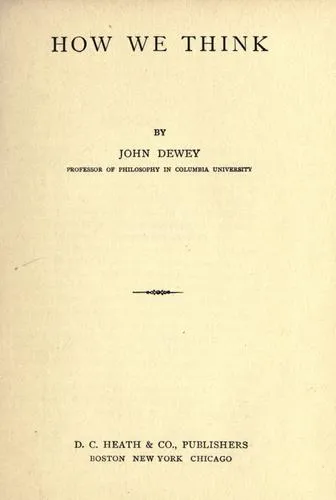
How We Think
- Genres: Modern
- Languages: English
- Provider: Librivox
- Price: $0.00
- Rating:
A book written by an American education philosopher in which he proposed “This scientific attitude of mind might, conceivably, be quite irrelevant to teaching children and youth. But this book also represents the conviction that such is not the case; that the native and unspoiled attitude of childhood, marked by ardent curiosity, fertile imagination, and love of experimental inquiry, is near, very near, to the attitude of the scientific mind. If these pages assist any to appreciate this kinship and to consider seriously how its recognition in educational practice would make for individual happiness and the reduction of social waste, ...”
Excerpt From: John Dewey. “How We Think.” - Summary by Linda Andrus
